Wed, 31 August 2016
It’s an amazing skill, after all, and something many people in business need to be able to do in more than one language. Since ancient times people have been using Memory Palaces to give their speeches. In fact, as Jim Samuels has talked about, we get the convention of saying “in the first place” in a speech from the Roman orators who were using Memory Palaces. Well, let me ask you this: What If You Don’t Have To Give A Speech From A Memory Palace On Its Own For Your Speech To Benefit From Using Memory Techniques?
Sunil Khatri raised this question in my mind when he wrote to me after giving this speech:
I was so impressed by Sunil’s explanation of how he used the Magnetic Memory Method and Memory Palaces to help him with the speech, that I asked if he would record an episode of the Magnetic Memory Method Podcast. He agreed! As you’ll learn, you can get great benefits from memorizing a speech in advance, even if you still recite it from the page. The same thing is true of reading from a teleprompter, which the best directors and producers always advise people giving speeches to do: Know where you’re going, but don’t appear like you’re recalling during delivery. It looks weird. I’m super-excited by Sunil’s results and look forward to hearing your stories of triumph when you use the Magnetic Memory Method to help prepare for your next big speech. Episode Transcript Anthony, thank you very much for giving me the opportunity to talk about some of the things I’ve been doing with the Magnetic Memory Method. I just also wanted to also say thank you very much for the support that you’ve given me directly through email interaction has been really, really useful and amazing. I started learning Korean maybe a little over a year ago I would say and mostly for work purposes. I’ve been traveling back and forth to Korea, and it is a really tough language in my opinion. When I started studying, I would read things like verb conjugations. There could be up to 500 verb conjugations based on the level you are at in society, in your office, your age group, all of these different things come into play in the written language and speech. It was pretty tough. I started learning and for the 6 months it was through rote memorization, flashcards, and things like that. Then I was trying to figure out is there a better way. Because I had spent the better part of 6 to 7 years learning Japanese and it was all through rote memorialization and talking to people and so forth. I came across your website and from one link to another to another and it ended up being at your site. I took your intro classes and so forth and it was actually pretty good. Then I started reading up on Memory Palaces more and things like that. “Korean Words Just Sort Of Magically Appeared In My Brain As I Was Talking … I No Longer Use Flashcards”
What happened was about 6 to 7 months ago, I think that was the first time we communicated, I basically started building a small Memory Palace and expanding that. Korean words just sort of magically appeared in my brain as I was talking, as I was remembering to the point where I gave up using flash cards. I no longer use flash cards. I put everything into an Excel spreadsheet and categorize them based on my Memory Palace. I come up with a mnemonic picture, crazy picture, whatever it is and associate the word to that crazy picture and there it is. I go through my Excel spreadsheet once a day to put it into long-term memory and it’s been amazing.
“Even My Teachers Are Freaking Out.”
Even my teachers are freaking out. How am I learning all this stuff so fast? But that was vocabulary. Then I started looking at grammar and things like that. Really in about 6 months I achieved over 500 words through the Memory Palace techniques. It was amazing. Then I was handed a request to do a speech for my office to a bunch of our clients. Essentially what happened was I said, okay and this was about a week and a half prior to me giving the speech. They said, okay you can do it in English. We’ll have a translator and everything for you. I said well, that’s great thank you. Then I thought about it. I said, wait a minute let me try this in Korean and see what I can do.
“Actually A Lot Of This Was Beyond My Vocabulary”
The speech was about 3.5 to 4 minutes, 5 minutes long. Rather than say, “Oh my god, I don’t know any of these words,” because actually a lot of this was beyond my vocabulary. It really focused on a lot of different types of grammars that you would use in a very formal setting. I didn’t know that. I didn’t know any of these structures or things. Some of the words were quite new. What I basically said was, I said all right I am going to think about doing this in Korean. Let me try and see if I can break this down. I guess when I said I think I’m going to do it, it really meant I’m going to do it and there was no looking back for me. I took the words, basically got the meanings of what the speech was in English and then took the Korean statements and broke it down into an Excel spreadsheet. So rather than reading everything as you would normally do, I took small phrases and put them in a cell in the Excel spreadsheet and then I created the mnemonics associated with that. Those wordings and so forth.
“It Was Pretty Daunting”
It turned out to be several hundred cells in the Excel spreadsheet with phrases and so forth. Then I started memorizing, and I did this in about a week. I got about 70 percent of the way through it, and then started working with a person on my team to kind of walk me through how to say the phrases. Where are the emotions, where are the intonations and so forth. Then from there I kind of build up what I say, how I say it, where I would put the stresses and so forth in a natural language type of view. It really was quite amazing. Then I just went through the Excel spreadsheet and started practicing over and over and over again to get that into memory. The remaining 30 percent was sort of rote because I just didn’t have time to do the mnemonics. Because it was only in about 5 days I put all this stuff together. The day of the speech came, and I got in front of couple hundred people, all Korean. I started talking and I used the notes. Because it was pretty daunting. Standing in front of a crowd and just trying to remember all these things and the stresses of speaking. Speaking in front of a crowd is difficult anyways. I had my notes but what my notes were the Excel spreadsheets. It was basically two pages just printed out, and I started just working through it. It was incredible. The crowd reaction was great. Everything was good. I just had a great time because all of this stuff was right there. The way that you pronounce things, even though I was referring to my notes. It was really amazing.
How To Experience Boosts In Confidence From Your Memory
It just gave me a huge new level and boost in confidence. I’m nowhere near fluent but I can guarantee you that this is all I’m doing now. I don’t use flashcards. I don’t do anything. All my learnings, not just in Korean but even beyond Korean, are based now on how I use Memory Palaces and your teachings and so forth. Really, really amazing. I’m continuing to focus on Korean but I’m also looking at other languages later. I really want to look at Mandarin Chinese as you’re doing. This is, again, I feel only after about 6 months of working with the Memory Palace techniques. It took me years to get to be able to speak in Japanese in front of people and even now I’m hesitant. But I’m going to back and apply these techniques to that too. Really amazing stuff. Thank you for the opportunity and I will continue to converse with you and get your advice on all the problems that I know I’m going to continue to have. Thank you so much. ============ Anthony, just one more thing I wanted to add if it is possible to edit it in or do something. I had mentioned about 70 percent of the speech I had done using a Memory Palace and 30 percent because I just did not have the time. I just sort of started reading the end of it. There was actually a noticeable difference in that 70 percent versus the 30 percent that people were telling me. They said, “Oh, the 70 percent that you did, the first part of the speech sounded so good, rhythmic, everything was there. The 30 percent sort of trailed off a little bit.” I owe that to the fact that I didn’t go through the mnemonics for that last bit. Even though I was able to continue doing it, reading it and kind of working through and people were still excited that I was being able to do this whole thing in Korean. So the application to Memory Palaces and so forth is really critical, I think, from a grammar perspective as well as from a comfort level. Because once you ingrain those things in your head, whether it’s subconsciously or whatever, when you’re reading it, those emotions and that structure come out. I just wanted to add that statement. But once again, thank you so much. Take care. Sunil’s Speech In Korean 안녕하세요. AKL HQ의 IT를 총괄하는 순일 상무 입니다. 여러분들의 뜨거운 열정과 도전으로 한국 암웨이가 25주년을 맞이 하였습니다. 많은 ABO 리더님들께서 이렇게 말씀하십니다. 아마도 이렇게 지속 안정적으로 성장 할 수 있는 원동력은 암웨이 프라자에서 일주일간 진행되는 다양하고 신나는 이벤트에 많이 참여하시고, 내가 먼저 우리 함께 !!! 신나는 암웨이!!! 감사합니다.
What About You?
Do you have a story of using a Memory Palace to give a speech? Or how about your struggles with speeches in public? How would better memory skills help you in this area? Take a moment to leave a comment below and get the discussion started. As Sunil’s experience demonstrates, memorizing even a speech you intend to read from the page improves your delivery beyond belief. Keep that in mind the next time you need to give a speech either in public or on the screen. The post Speech Success Story Using A Magnetic Memory Palace appeared first on Magnetic Memory Method - How to Memorize With A Memory Palace.
Direct download: How_A_Memory_Palace_Can_Help_You_Give_A_Speech_In_A_Foreign_Language.mp3
Category:Podcast -- posted at: 8:12am EDT |
Wed, 24 August 2016
Can You Improve Your Memory At Any Age?
The answer is a resounding “Yes!” and Brad Zupp’s story proves it! In this episode of the Magnetic Memory Method Podcast, Brad Zupp joins us to talk about everything from language learning and memory techniques to the philosophy of education. Brad Zupp is a wealth of information about memory, so after downloading the MP3 and reading or downloading the transcript, be sure to check out the fascinating memory improvement articles on his blog. One of the things that makes Brad so unique in the memory field is his candid revelations about using memory techniques as he ages. As you start opening multiple tabs and start absorbing all of this memory-boosting information, you can also follow Brad Zupp on Twitter and follow his author page on Amazon to be notified when the new books he mentioned on this interview appear. I’m all hooked up and as a serious student of memory improvement, you should be too. Enjoy this episode with the stellar memory athlete and educator Brad Zupp and be sure to say hello in the comments below!
Will Unlocking Your Memory Begin With Names?
Anthony: Brad, thank you so much for being on the Magnetic Memory Method Podcast. As you know, I was really enthusiastic about your book, which is incredible. It is called Unlock Your Amazing Memory: The Fun Guide That Shows Grade 5 to 8 How To Remember Better And Make School Easier. I reviewed it. You were kind enough to follow up on that with this interview. So thank you for being here. Brad: Thank you. It’s my pleasure. I really appreciate both the chance to talk about memory improvement and the kind review of my book. Anthony: For people who aren’t familiar with Unlock Your Amazing Memory yet, tell us a little bit about your story. Maybe, what’s your first memory about being interested in memory? Brad: The first memory about being interested in memory was when I was myself in about the fourth or fifth grade I was horrible at numbers and names. Names were not helped in that we moved a lot. My dad was an executive in a company. He was he was a fixer. He was someone that they’d say well that division or that office branch is having trouble. We need someone to go fix it, so my dad would get tapped for that. So we moved a lot. I remember third grade I guess was the first time it really came to me that memory is important. It was the end of the school year, and I gone to that school for the first time in the fall. The third grade, it was at the end of the school year though the teacher asked me to hand out papers on Friday. We must have written some type of paper or book report or something.
The One Memory Problem That “Freezes” Just About Everyone
She said, “Okay, Brad, you can hand out papers this week.” I just froze because I knew I didn’t know everybody’s names in class. Now as adults, we introduce each other to each other or introduce ourselves to each other. Kids don’t do that. Kids will come up and say, “Hi, my name is Sally.” So part of it was I had never met people. But I had a horrible memory with names and with numbers. I was up at the front of the class and I had the papers. I was going, “Oh, Sally you got a B. Way to go.” You know, kind of looking up with my eyes to see who of the girls in the class was going, “Oh, I got a B,” Because that’s how I knew it was Sally. I didn’t know people’s names. That continued all my life. Numbers, I was always bad at math in large part because I couldn’t remember numbers. I could do the calculations. But if it any of it involved storing a number in my head to add it or anything, I couldn’t retain that number long enough to do the second step of the calculation. If I could write the first part down or use my fingers, I was fine. The calculations weren’t the problem. It was remembering numbers was the problem. There was no solution for me back then. That’s in part one of the reasons I wrote the book I did first instead of writing a book for adults first is that there’s a lot of kids like that. They can’t remember something. Maybe they’re good with math, but they can’t remember the spelling of their vocabulary words, or they’re great with spelling but they, for whatever reason, cannot remember numbers like me. That’s why I wrote the book. That’s my first memory.
How Do Kids Deal With Memory Problems?
Anthony: This is fascinating. I wonder how do you think that kids enunciate their frustration with their memory, because you know you were aware of it and that’s quite an early memory, but to what extent do you observe that young kids are aware of that as being a memory problem and how do they express it? Brad: Back when I was experiencing that, there wasn’t really a way to express it. I mean I didn’t go home to my parents and say, “I can’t remember names. Let’s get a book and help me or let’s look on the Internet.” We didn’t have any of that back then. I think it was kind of suffer in silence. It wasn’t something that traumatized me, but I remember it very clearly to this day being up in front of class and the embarrassment of the end of the school year not knowing my classmates names. That was just horrible. These days, kids with the Internet, more libraries, more books available on Amazon and other online availability of books, kids know that they can find solutions online. One of the things I do when I go into schools for presentations, I say something like, who thinks they have a bad memory? Who has studied for a test, been very confident, then you sit down in your classroom, the teacher hands out the test, you look at the first couple questions and go what? Am I in the right class? Am I in the right school? Because you cannot for the life of you remember these things. Kids as young as seven, eight, nine years old are experiencing that. They’re confident, they’ve worked hard and then they blank out. So they know, I think kids these days are more aware about things like money. They’re more aware of this is it working for me, and I can get help with this. So I think kids these days are willing to tell their parents, teachers or a visiting presenter like me, “Yeah, that’s me. I have that problem. Fix it! I want to get better grades.” That’s one of the joys I have is going into schools and helping kids realize the memory, as you tell people, young and old, memory isn’t something we’re stuck with. We can improve it.
Why Memory Improvement Is Easy And Fun To Do
It can be easy and fun to do. It doesn’t have to be boring, because I think that’s where a lot of the kids, as they get a little bit older, is that they catch on remembering, or they give up they say remembering is hard, studying is hard. I hate school. This is boring. The teacher says, “Oh, you can’t remember it? That’s okay, just read it again.” If you don’t read well, or you don’t enjoy what you’re reading, which is pretty common I think across the ages, anybody going to school, there’s always a few subjects you like why am I learning this. If the teacher says well read it again, you read it the second time you’re even more bored than you were the first time, and the teacher says you still don’t have it. Read it a couple more times. At some point, you just go no. I’m just not good at this. I’m just going to give up. It’s great that people like you and me and a lot of other people are out there saying there’s a different way. Anthony: Right and I think that’s one of the things I admire so much as you’re out there and you’re bringing this message. That leads me to a question that I think everybody who works in memory education encounters all the time. I certainly get it at least once a week, which is why aren’t they teaching these techniques in school? You are actively actually going out and teaching it in schools. How did you get into proactively making sure that memory techniques are taught in schools? Brad: I was a financial planner for a while. I got really tired of sitting in an office and not being able to use my creative side. Sometimes I struggled as a financial planner with memory, with remembering some of my clients’ names. I remembered my top several clients’ names. But, if someone just did something with me once, it was sometimes hard to remember their name. So I was already struggling with that. Of course, the number problem continued to haunt me, which is pretty important for a financial planner. But I also just hated it in the office.
One day I told my wife I should get out of this, and I should go back to doing something fun. I had been a professional juggler for a number of years before getting into real estate and then finance. I told my wife I should go back to doing something fun like juggling, but I wanted to do something important. So maybe I should combine them and do a fun show about money for kids. I said it just kind of as a joke to make her laugh, but she paused and said that’s a really good idea. The more I thought about it, the more I realized it was a good idea. I eventually found other financial planners for my clients. I gave my notice. I sat down and wrote a school assembly show about personal finance. I did that successfully for a few years. Then I was thinking, what’s another show? Money is so important for kids. But what’s something else that’s so important for kids? If I were back in third, fourth, fifth grade, and I could have any type of presenter come, whom would I have come? I wish I could say my first thought was yeah, someone to explain money, which is what I was already doing. But it wasn’t. It was someone to help me remember better –math, science and names. I thought if I had that problem, maybe other kids are having that problem. I did some market research by calling a bunch of my friends that had kids anywhere from seven to seventeen years old. I said, “Do your kids have this problem?” The universal response was, “Oh my gosh, yes. They can’t remember anything from schoolwork to bringing home the parent signature that they have to have the paper signed for their field trip, to pick up their clothes. I tell them hey we’re going to do this on Saturday. Then an hour later, they’ll come back and say, hey what are we doing Saturday because they were completely forgotten.” So I thought well I might have something here. I just sketched out a few of the things that wanted to do with the show. I realized the way to present this is to make it fun. I can’t just go in and lecture kids, because kids don’t want to be lectured. I’ve got to make it fun.
Why The Fun Is In The Pudding (With The Proof)
To make it fun, I really have to demonstrate that I know what I’m doing. I have to be able to do kind of some phenomenal feats of memory. That means that I need to improve my memory, because I don’t like just to preach. I want to walk the talk. How Brad Zupp Went From Bad To Great In Record Time
I said, “I need to make sure this works.” It coincided with me turning forty, and my already bad memory in some areas getting worse. I thought okay this is great. I’ve got this idea for a school show. My memory is getting horrible as I turn forty. I still can’t remember numbers. I still can’t remember. Let me make sure this works. I don’t want to be going into schools and telling kids yeah do this and then have a horrible memory. I want to have an outstanding memory. I want to go from bad to great and say it worked for me. Here’s how I did it. It can work for you. So I threw myself into memory training. Shortly after I kind of started with this stuff, I remembered reading an article about a memory competition. So I on a lark signed up for that, went and did relatively well for someone with no training. That kind of started my love affair with memory competitions as well, which we can talk about if you want. Eventually, I got good enough at the memory feats where I felt I could present it in a school, impress the kids and show them that I’m not just some guy talking. I’m some guy who knows what he’s talking about and can do it. I continued writing the show. I started practicing the show in little bits and pieces. I started memorizing the names of students when I would go into schools for my personal finance show. Gradually over a couple years got better at it and good enough at it where I could actually do the show. It took off from there. Anthony: So a large part of this was learning to teach.
Secret Memory Improvement Ingredient: |
Wed, 17 August 2016
|
Wed, 10 August 2016
Maybe even because you’ve been labeled with manic depression or A.D.D.? I hope you don’t have those conditions, but either way, there’s hope for clearing up any and all brain fog from messing up your memory. And it’s great honor that Rob Lawrence, host of Inspirational Creatives Podcast has allowed me to share his interview with me. In it, we talk about creativity, concentration, musicianship and how all of it ties into living a life of superior memory. Note: Quite a few things have changed since recording this interview. Olly Richards helped me fix a Spanish pronunciation problem created by the power of mnemonics and there have been a number of Magnetic Memory Method podcast episodes on Music Mnemonics For Guitar And Piano that have shown development and huge promise since recording this talk with Rob. With all that said, here’s the transcript for this interview to go with the audio. Enjoy and be sure to read more about Rob Lawrence and get subscribed to the Inspirational Creatives Podcast on iTunes!
Psychic Brain Surgery
Rob: So do I call you Dr. Metivier or Anthony? Anthony: Well that’s always a very interesting issue. I really don’t know. I mean get a kick out of being called doctor, and it certainly circulates around but it’s not necessary. My dad gets a kick out of it too. Actually, it’s funny that you mention brain surgery. Because for years and years he didn’t really quite understand what I did in my Ph.D., so he used to call me a brain surgeon, which there are some elements of that involved in what I do. It’s just psychic brain surgery. Rob: Yeah, there’s some technical accuracy in that. Have you always been interested in memory and imagination? Anthony: In a roundabout way. I basically wrote my first story that I remember, when I was in grade four. By story, I mean something that had a solid beginning, middle and an end. I had an ability to remember stories, as we all do, and loved to retell stories, tell jokes and retained stories in my mind. I’d often watch a movie and then try to rewrite it from memory. Yeah, I’ve always had this interest from a very young age. Rob: Stories are a fascinating concept, something that we tell our children and seem to be something that we’ve done since the beginning of time. Do you think we’ve lost our ability to remember in the way that we used to?
Why You Have Not “Lost” Your Ability To Remember
Anthony: I don’t believe at all that we’ve lost it. But the extent to which we use it has certainly changed. There is a kind of running myth that back in the day in Ancient Greece and in Matteo Ricci‘s era everybody used these memory techniques that I teach. They all memorized thousands of books and this kind of thing, which isn’t true. I would say that the ratio of people who use memory techniques then and in comparison with now is relatively the same per capita let’s say. It’s really just a growing thing. We’re in a renaissance of memory techniques right now. It seems to be happening at the precise moment that technology appears to be taking over or our memory needs, which I find deeply fascinating that this renaissance is taking place now at that technological moment. There are reasons to believe that actually technology is expanding our memory abilities rather than diminishing it. That’s a topic to be explored. It’s very conceptual, and I don’t have any hard data behind it but it’s something that I feel is being enabled by technology rather than the common statement that our memories are being eroded by technology. Rob: That’s fascinating, an absolutely fascinating thought there. So what are the key factors necessary to be able to succeed in improving your memory and using these Magnetic Memory Techniques that you teach? Anthony: Well there are a number of factors, but it all begins with the desire actually to improve your memory because without that there is nothing to ground it upon. Lacan, the French psychoanalyst, always said that the fantasy is better than the reality. That’s not exactly true in this case because you use fantasy in order to create reality, but nonetheless, there is an effort involved. A lot of people don’t have the necessary drive in order to get into it. One of my jobs is to give them that drive. So that’s a key factor there. In many ways, that is what my job is. It is simply to open the door for people, give points of access and points of entry. Beyond that, there’s the willingness to experiment, which is a key factor, the pleasure in imagination is a key factor and also a kind of wish or desire to have this information and to use it. Because if you’re not going to use it, you can have memorize all the things in the world and it won’t do anything for you. Memory champions, for example, can memorize thousands of digits that they forget half an hour later, but they have that particular use value in the competition in of itself. It’s always got to have some sort of use and some sort of pay off. The more you can identify with that use and that payoff is, then the more you have that necessary key factor to succeed.
Don’t Miss The Motivation Train!
Rob: You’re talking about motivation there, and you’re also talking about trying to find ways to get started exploring these techniques. Anthony: It’s not particular to the field of memory training. All areas need points of access and entry points. With music for example, people who would be perfectly capable of becoming very good musicians don’t get the point access that enables them to enter the kingdom. It could be that they didn’t get the right teacher or they didn’t get enough sleep or enough Cheerios or whatever the case may be. They just missed that train which is very sad because we all have musical capacities. That really is, I think, one of the key factors of all education is helping people find that entry point, as many as possible, because it’s really sad. We all have the ability to do anything really. We just need the prophets and the leaders who are able to show the way. Rob: I’d love to come back to that point about music because I’ve heard you’re a musician. Before I do, with your work, what are some of the key access points that you help people with in terms of being out to get a footing on these Magnetic Memory Techniques? Anthony: Well for me the big thing is the Memory Palace. The reason why I focus on it so specifically and teach so much about it is because it’s not only the fundamental memory technique, but it is the memory technique that you can use all of their memory techniques inside of. If you can get going with that, then you have enabled yourself really to have a success with every other memory technique. One of the other reasons that I focus on Memory Palace is because everybody knows where their toilet is. Everybody knows where their bed is. Everybody knows where their kitchen is. Because of that innate ability to recall locations with great detail, just conceptually knowing the distance between different areas and where they’re located in space in your home or in your workplace, you can then leverage that power and place information by the sofa or on the desk and recall it at ease by simply mentally going to that location. That is a major point of entry if you can learn how to use that technique correctly, instantly use it for something that is interesting to you and makes a significant difference to your life. Because so many people encounter memory techniques and they say well memorize your grocery list. Nothing in the world could be more boring than memorizing a grocery list, which is another reason why people don’t find a point of entry. But when you say memorize the lyrics of your favorite song that somehow evade you are using a path from your sofa to your office desk to your dinner table, well then that’s interesting because you get a great deal of pleasure out of it. Now you can sing along with that song. Now you can annoy your spouse or your friends by singing it over and over again or whatever the case may be. That makes a difference in your life. Those are two points of access, the very specific technique and then how you’re going to use that technique to get a victory, that make you feel good. You see the possibilities for what else you could memorize.
Two Kinds Of Memory Palaces … Take Your Pick!
Rob: That’s fascinating. So there is this concept here of Memory Palaces and are they real places or these places that we make up in our minds? Anthony: You can make them up in your minds or people use video games. There are all kinds of possibilities in what I call virtual Memory Palaces. I typically do not recommend that people use them at least not at the beginning stage. Yes, you want to ground your Memory Palaces on real locations, places that you’re familiar with and generally places that you have a positive association with. I have worked with people over the years who suffered abuse in a home, and they just keep coming up against those memories when they’re trying to use it as a Memory Palace. You could use a Memory Palace technique to help cleanse those bad memories, but until that that has taken place it’s really best just to use places with positive associations or at least neutral associations, which is another technique that you can use to have a clinical approach to things so that positive and negative memories don’t really play. For example, high schools have both positive and negative memories. If you can get a neutral approach or a clinical approach, then they’re pretty safe to use and very detailed so that you can get a lot of action out of them.
Familiarity Is The Key
Rob: Is there an advantage to using places that you already know you know? Anthony: What you are going to do is actually create a journey through a home, or a school, or a church, or a movie theater or whatever the case may be. You’re going to follow that journey the same way every time. It’s not exactly like following a movie through your mind, but it’s more like following a play through your mind because you restage it every time. It’s going to be slightly different. But nonetheless, a movie or play, you’re going to move on that journey in the same way. I mean there’s later techniques were you leap frog around in order to overcome what’s called the forgetting curve but in general you follow that same path just as you would basically follow of the same path from your door to your driveway. I mean you could walk around in circles around your car, but normally you just go from the door to the driveway to the door of your car. Because that is so ubiquitous, so every day and so commonplace, there’s nothing to remember or forget about it. You just know that intuitively and intentionally because it’s what you would do in real life anyway. Instead of just walking passively alongside the rosebush, now you have a giant clown who is eating your slippers to remind you that they need to go buy new shoes, or to help stimulate a line of poetry, or a foreign language word, or whatever the case may be, you’re actively using that location instead of passively. It’s just something that you pass by every day anyway. Rob: It sounds to me like something we intuitively do as children when we’re younger and we recount stories. That thought is inspired by something you just said there which is the clown eating the slippers. It’s part of the technique to exaggerate and create these kind of images in our minds.
How To Experience Cartoons In Your Mind
Anthony: That’s a fundamental part of it. So on top of the journey through a Memory Palace, every place that you want to memorize a target piece of information you create an image in order to encode it. Then when you go along that journey again in your mind you, decode it. The way that you remember the coding is by making it big, large, bright, vibrant and colorful, and on top of that, including some kind of zany crazy bizarre action. The more that you can focus on doing that, which in the beginning can be a bit of a challenge for some people, but gets very easy very quickly with some exercises and just practice, you can shock yourself into remembering anything. The more that you have cartoon-like silly engaging actions between characters, like an action with a reaction the way you would have in Wile E. Coyote cartoons with the Road Runner, or Pinky and The Brain or whatever these cartoon characters are. They are actually quite rigorous with one another. One would even say violent, but in a cartoon way, then they’re going to capture the interest of your mind’s eye in the way that a car wreck on the highway causes the rubberneck effect and you have to see it. Then you decode it and you get your target information back. If you do it a sufficient number of times, then you don’t need the image anymore. You have affectively learned and memorized the information and it’s yours.
How To Harness The Memory Power Of Emotions
Rob: Wow! That’s pretty fascinating. So it sounds to me like these techniques are more objective than they are subjective. What I mean by that is you were talking earlier about positive and negative emotions. I guess one of the assumptions I made automatically before I spoke with you today is that you use some kind of emotional power to help you remember certain things. Would that be an accurate reflection or is it a bit more complicated than that? Anthony: Technically you’re using an objective process to create subjective experience that relates to an object memory or some piece of information that is a kind of object. It’s a living breathing object. Yes, emotions are involved. I mean if you see your spouse smashing something with a hammer, there’s going to be an emotion involved. That emotion can be anger. Some of the images involve kissing which can involve romantic elements. You do want an emotional element to it, but you want it objective in the sense that there is a strategy involved. So in the same way that Hugh Grant might not be in love with Drew Barrymore and yet they’re kissing and projecting that emotion, you’re going objectively to create an emotion through deliberately rigging images in your mind.
The Real Reasons Why Anyone Can Improve Their Memory
Rob: Got it. So is this something that anybody can develop in your experience? Anthony: Everybody can experience memory improvement. They’re already doing it at some level anyway. So it’s just a matter of understanding how that your imagination works, which is pretty simple and easy to do, then leveraging it and then developing it in certain directions. But even if you don’t develop it, you still have the ability to do this at an intermediate level. There’s no elementary level to it whatsoever. You can go from intermediate to an advanced level. Anybody can do it. I mean I have podcast interviews on my podcasts with 10‑year-olds, 8‑year-olds who are using these techniques. I have personally trained 88‑year-old individuals and people in their 80s, 70s, 60s and 50s. There’s even very interesting research going on right now by someone in Kasper Bormans who is using the Memory Palace technique to help people with Alzheimer’s remember the names of their family members and getting results with this which is absolutely incredible. So there are curative properties for people who have brain damage. They’re also using Memory Palace techniques for what’s called chemobrain when cancer patients have to take a lot of chemotherapy and they lose their memory, and they lose general cognitive abilities. So they are getting results with this kind of memory exercise as well. So anybody can do it. Rob: Wow! That’s pretty incredible and something I was going to ask you about. But it is pretty inspiring to hear that these techniques can be used, or similar techniques to this, can be used to help improve the memory of people that have health conditions, which are affecting their memory. That’s pretty inspirational. What are the common applications that your students tend to use? You’re talking about very young people there and very old people. In your experience, what do people tend to use these Magnetic Memory Methods for?
The Most Common Applications Of Memory Techniques
Anthony: The biggest application in my personal experience as someone offering these is with foreign language vocabulary and to a certain extent grammar principles. This has been tremendously successful because it’s one of the hugest pain points in the world. People want to learn new languages. They want to improve their own language, but words just don’t stick without either massive amounts of repetition or some kind of technique. There are all kinds of techniques in the world for using your memory to help you better recall words. But there is no specific strategy that was developed just for word retention and recall. So I developed it. I developed it out of my own personal need, shared it and it just became wildly successful because so many other people have that pain point. That’s really the largest part of my training is specifically for the purpose of learning languages. Rob: So I’m guessing you speak different languages? Anthony: I wouldn’t be able to do otherwise because I just don’t have any kind of natural ability the way some people do. But of course, some people don’t have a natural ability. They are just using certain techniques in their minds that relate to what I teach, but without a kind of actual apparatus. I never it was very successful despite a deep interest in languages throughout my life. But being able to build a number of Memory Palaces and put large amounts of vocabulary with a basic understanding of grammar, vocabulary being like a kind of petrol or gas that you put into an engine, and grammar being a kind of engine, then you can get very far very quickly. You just need to add speaking, reading, writing and listening to the mix. Things happen very quickly. Rob: So can you give me an example of perhaps one of the languages that you’ve begun teach yourself, and can you talk me through how you’ve perhaps memorized the phrase or something like that with these Memory Palaces in mind? Anthony: One thing that I’ve been developing for some time now but that I really love is Spanish. So imagine you came across the word abuela. Abuela means grandmother, and you wanted to memorize that. There are really not any cognates with English. There’s no relationship grandmother and abuela. So you’ve got to find a point of access. One thing that you can do is split the words in different pieces. So there’s ab-u-ela. One thing that I like to do is use famous people. So ab reminds me of Abraham Lincoln and ela reminds me of Ella Fitzgerald. I imagine that Abraham Lincoln encounters Ella Fitzgerald dressed as his grandmother and she is saying boo like a ghost. So now, you have ab-u-ela. You can add abuelo for grandfather just by having some Jell-O or whatever the case may be. Now you’ve got that word and that is on the bed in a Memory Palace that I have. Then just move to the next one, the next one and the next one so that you’re collecting words. Just imagine that there are a number of words in Spanish that start with “ab.” Abraham Lincoln moves from place to place to place interacting with different other people. You can pick up a lot of words really quickly. Then again, using them in speaking, reading, writing and listening, you’ll encounter them, you’ll hear them, and you’ll use them. Everything is just absolutely fantastic. You might even call it Magnetic.
How To Memorize Grammar Concepts Fast
Rob: How does it work with grammar without getting into too much detail because I imagine that’s a slightly different ballgame. Anthony: It is and it isn’t. A lot of grammar has to do with conjugations. I mean grammar is a big world. One of the things is verb conjugations, which are very difficult for people. So imagine that you create a Memory Palace for say the “to be” verbs. Spanish has two, so let’s just deal with one. You would have ser. For me, I used Hamlet serving desert because ser is in desert. It’s not a one-to-one correspondence but it works for me. You’re rarely going to find one-to-one correspondences. There are a number of conjugations of “to be” like you are, I am, they are. You have a sufficient number of stops or stations in a Memory Palace and you just see Hamlet helping you remember all of those different conjugations. So ser is to be. Yo soy is I am. Tu eres is you are and so forth. So yo soy, Hamlet is injecting the cake into a bathtub of soy. Tu eres is this giant statute of Aries and he is throwing the cake at that statue’s face and so on. So that’s one way for verb conjugations. You pick any verb that you and you conjugate them. But you also generally pick up the way that the regular and irregular verb contributions work. So after a while you really don’t need to do that for every verb. You just need the verb.
How To Develop Unconscious Competence
Rob: I’m guessing that over time through practice that you become unconscious competent at this. I guess the language just starts to come naturally does it? Anthony: Yeah, especially if you do a kind of alphabetization that I was suggesting because, not in all languages but in many languages, you get a feel for how the structure works. So in German, for example, there are a lot of words that start with ent. That generally, but almost always, suggests something about the next part of the word. Also with words that start with ber. Whatever follows that generally has something to do with what that ber characterizes about the language. That works in English as well with endings and with some beginnings. You get a feel for it. You get to a point where you can guess with some accuracy what a word means. Of course all language learning is experimentation, testing. Do you get a result from the use of a word or is it making sense when you read. Of course, words have multiple senses. But language learning, like memory itself, is not a fixed piece of glass. It’s something that is wet and movable. You just go with the flow, and you use memory as a kind of surfboard to navigate through torrid waters. Mnemonics for Music Memory Hacks In Development
Rob: Got it. I’d like to turn our conversation towards creativity, and come back to this point about music and appreciate that you’re a musician. How long have you been a musician? Have you been a musician your whole life? Anthony: I played guitar in my dad’s lap. It is one of those classic images where the father is helping you press down your fingers on the guitar. After that, it’s kind of a long story, but when I got to band class in grade six they didn’t want to let me into band class because I didn’t pass the proper tests. I persisted anyway even though I was tone deaf or whatever those tests were that they had. I persisted. I wanted to play bass guitar and they said you can’t. We’re not going to buy an amplifier for the class just so you can play bass guitar. I said well what’s the next closest thing and they said trombone. I went with it. Then I played trombone until I got grade nine, and I was able to finally able to get a bass. Then I just started in bands and went from there. I ultimately wound up playing in a band in Germany and going on tour and having lots and lots of fun as a result. Bass has always been my thing, but I’ve also played sitar, flute, banjo, a bit of piano and a little flute that I got in Prague once upon a time. Rob: I read, I think it was on Amazon actually, that you were memorizing Bach’s compositions on cello. Can you describe to me a bit about how your methods apply to creative endeavors, for example, playing or more writing music? Anthony: I’m learning the Bach cello pieces on bass guitar for performance on bass guitar. One of the things that really help is if you are able to create an image for each string. So E is for Ernie. A is for out Al Pacino and so forth. Then you can have each fret have a sound attached to it or an image. There’s something called the Major Method where each number is a sound. So 0 is “sa,” 1 is “ta” or “da,” 2 is “na,” and so forth up until 9. Then you can create combinations. So if something where at the twelfth fret, for instance, that would be tan because 1 is “T” or “D”, and 2 is “N”. You don’t even have to be as specific as the string if you don’t want to. But if you know something’s on the twelve fret, and it’s on the E string, then that is Ernie getting a tan. Or it’s Al Pacino getting a tan. It’s just a quick thing where you can look at a piece of sheet music and you can navigate quite quickly and establish not needing to look at the sheet music and not really needing as much dedicated practice looking back and forth, closing your eyes, playing, and looking back and forth. It really helps. But you need the basis first. If you are trying to do this while you’re learning the memory techniques, then it probably would be more of a barrier than anything, or if you were trying to use it while you’re learning music it would probably be more of the barrier than anything. But if you have both of those things in combination, then it’s a beautiful thing.
The Real Secret Of A Solid Memory Is Sleep
Rob: So get some music theory first, learn the memory techniques, then try and put the two together. Anthony: Basically, but I wouldn’t want to discourage anyone from trying to do both at the same time. My feeling is that having learned music myself and having learned to do dedicated practice playing with that rote learning style, I can see that they would jar with each other. Rob: Yeah and how reliable have you found these techniques in terms of your music and being able to memorize such compositions? Anthony: Well I’d say that it’s basically an 88 to 98 percent success rate. A lot has to do with how tired one is, how well fed one is, how much the bodily needs are taken care of so they can use your attention, which is going to be true one way or the other. Also, it has to do with motivation and intensity. When I was playing, I just came back to Germany from Canada and I needed to be prepared to go on the road with The Outside. Rob: The band. Anthony: There wasn’t a whole lot of time for me to think F, G sharp and all that stuff, and try and get it. I just needed to know that those were the notes and as quickly as possible. So it really helped in that in that case rather than feeling around. Plus we were tuned in C#, and that doesn’t really go with my ears that well. I really needed to know what the notes were, I couldn’t hear them as well, and as I mentioned, I sort of have had historically a difficult time with learning by ear. It’s really helped me out to pick up things fast that way. It also helps build concentration.
The Bare Minimum Time Investment In |
Wed, 3 August 2016
But do you know what serotonin is and how it connects with the quality of your memory? Well, if you want to experience a better life, it’s time to pay attention. Serotonin is not only essential to having healthy memory abilities. It also helps you feel good, sleep better and works magic on your mood when you’re feeling down. In fact, as a neurotransmitter derived from tryptophan …
Serotonin May Be The Most Important |
The Magnetic Memory Method Podcast

Categories
generalMemory Improvement Tools
Memory Method Tips
Brain Exercises for Memory Improvement
Memory Improvement Case Studies
Podcast
Guest Post
Memory Palace Tactics
Practical Memory Techniques
Uncategorized
Improve Memory Q&A
Archives
AprilMarch
February
January
December
November
October
September
August
July
June
May
April
March
February
January
December
November
October
September
August
July
June
May
April
March
February
January
December
November
October
September
August
July
June
May
April
March
February
January
December
November
October
September
August
July
June
May
April
March
February
January
December
November
October
September
August
June
May
April
March
February
January
December
November
October
September
August
July
June
May
April
March
February
January
December
November
October
September
August
July
June
May
April
March
February
January
December
November
October
September
August
July
June
May
April
March
February
January
December
November
October
September
August
July
June
May
April
March
February
January
December
November
October
September
August
July
June
May
April
March
February
January
December
November
September
| S | M | T | W | T | F | S |
|---|---|---|---|---|---|---|
| 1 | 2 | 3 | 4 | 5 | 6 | |
| 7 | 8 | 9 | 10 | 11 | 12 | 13 |
| 14 | 15 | 16 | 17 | 18 | 19 | 20 |
| 21 | 22 | 23 | 24 | 25 | 26 | 27 |
| 28 | 29 | 30 | 31 | |||
Syndication

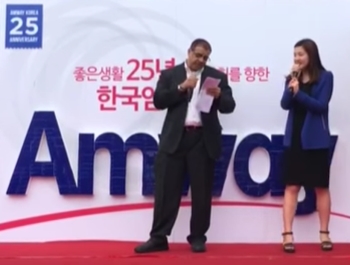 Would you like to be able to give a speech directly from memory?
Would you like to be able to give a speech directly from memory?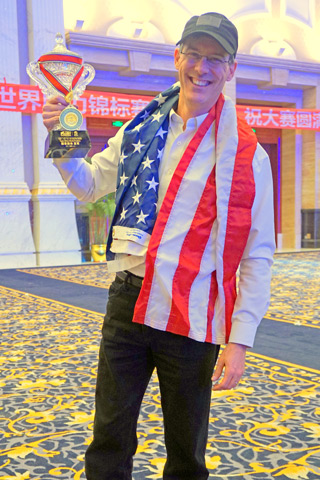

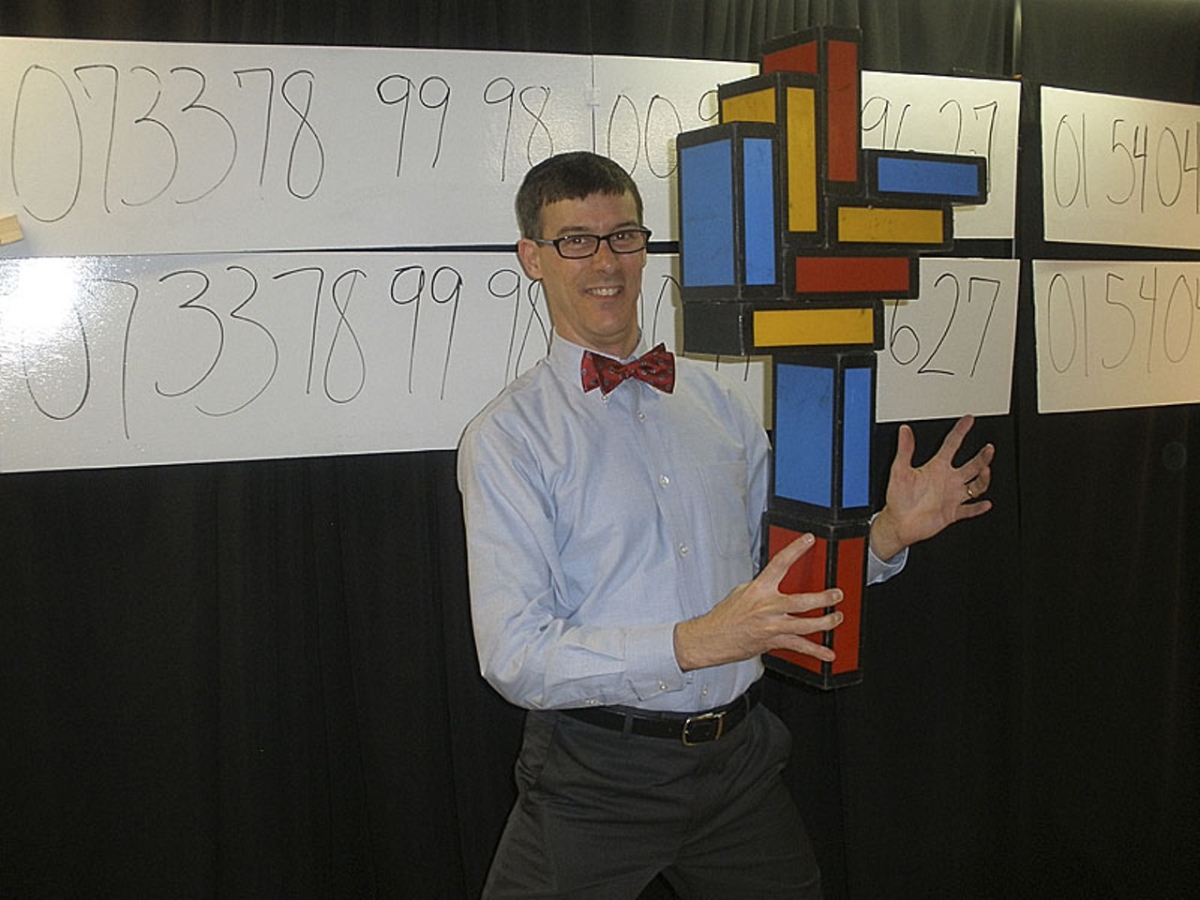
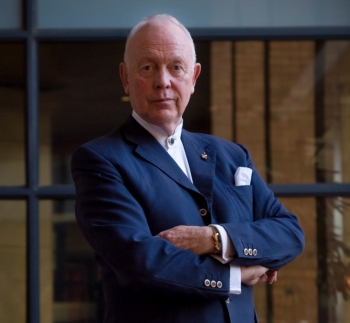 If You Don’t Know Tony Buzan And His Mind Map Technique, Here’s How To Learn Faster and Remember Everything!
If You Don’t Know Tony Buzan And His Mind Map Technique, Here’s How To Learn Faster and Remember Everything!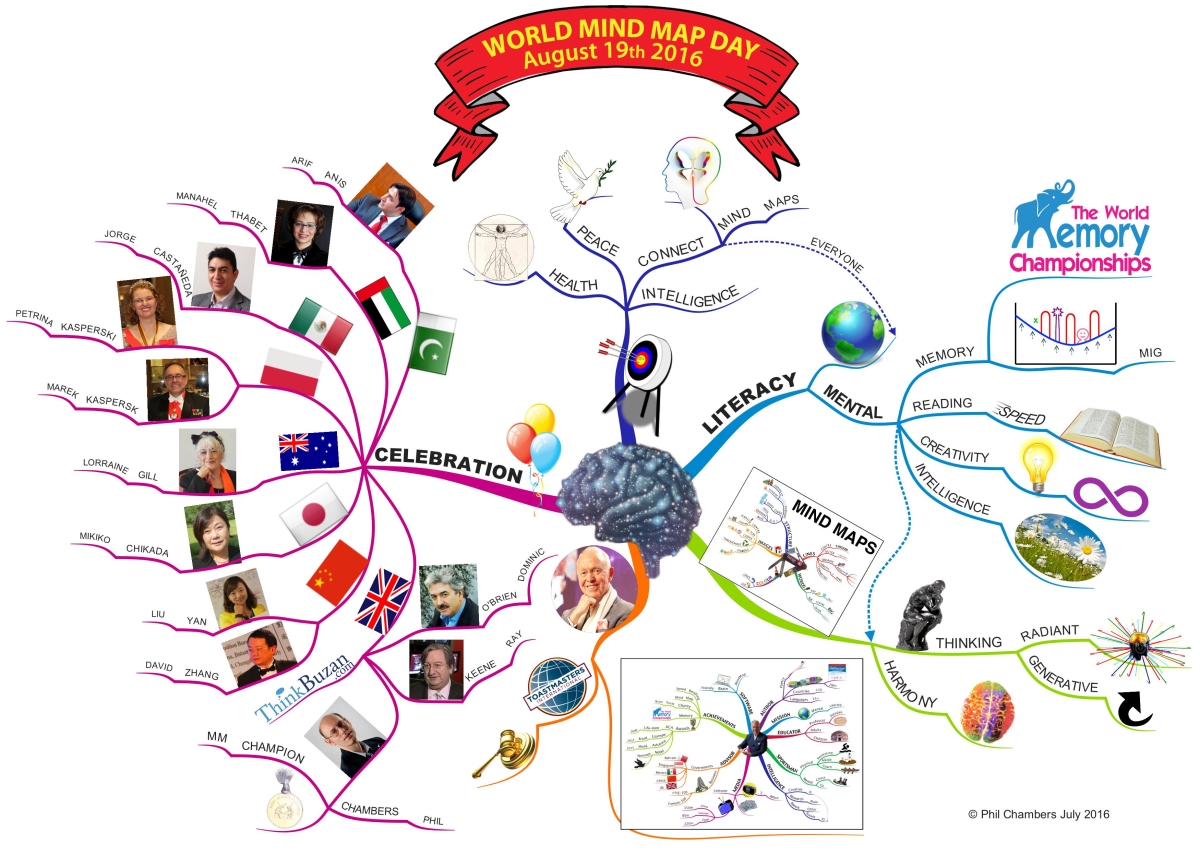
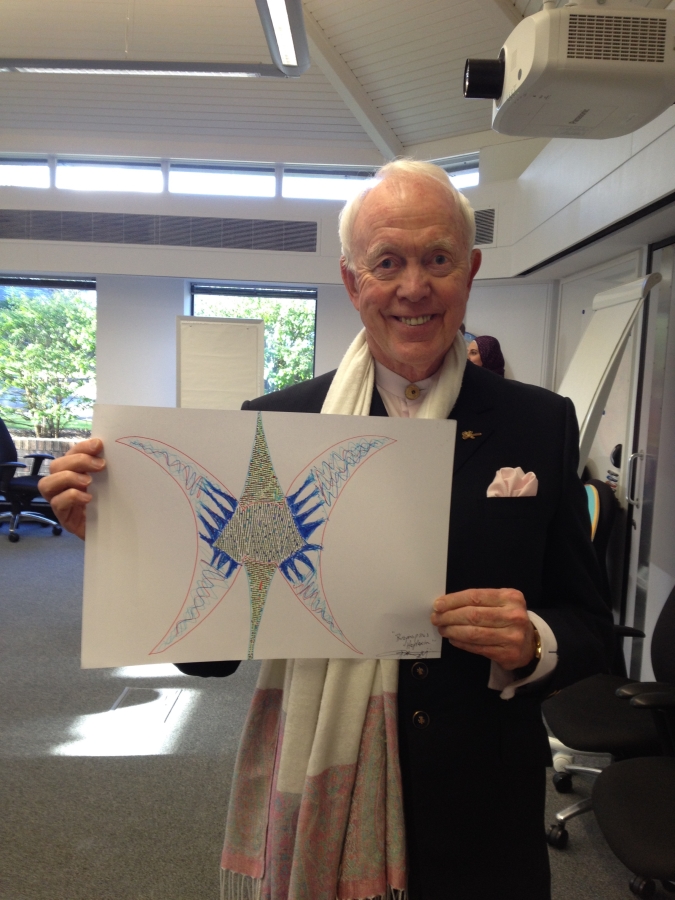
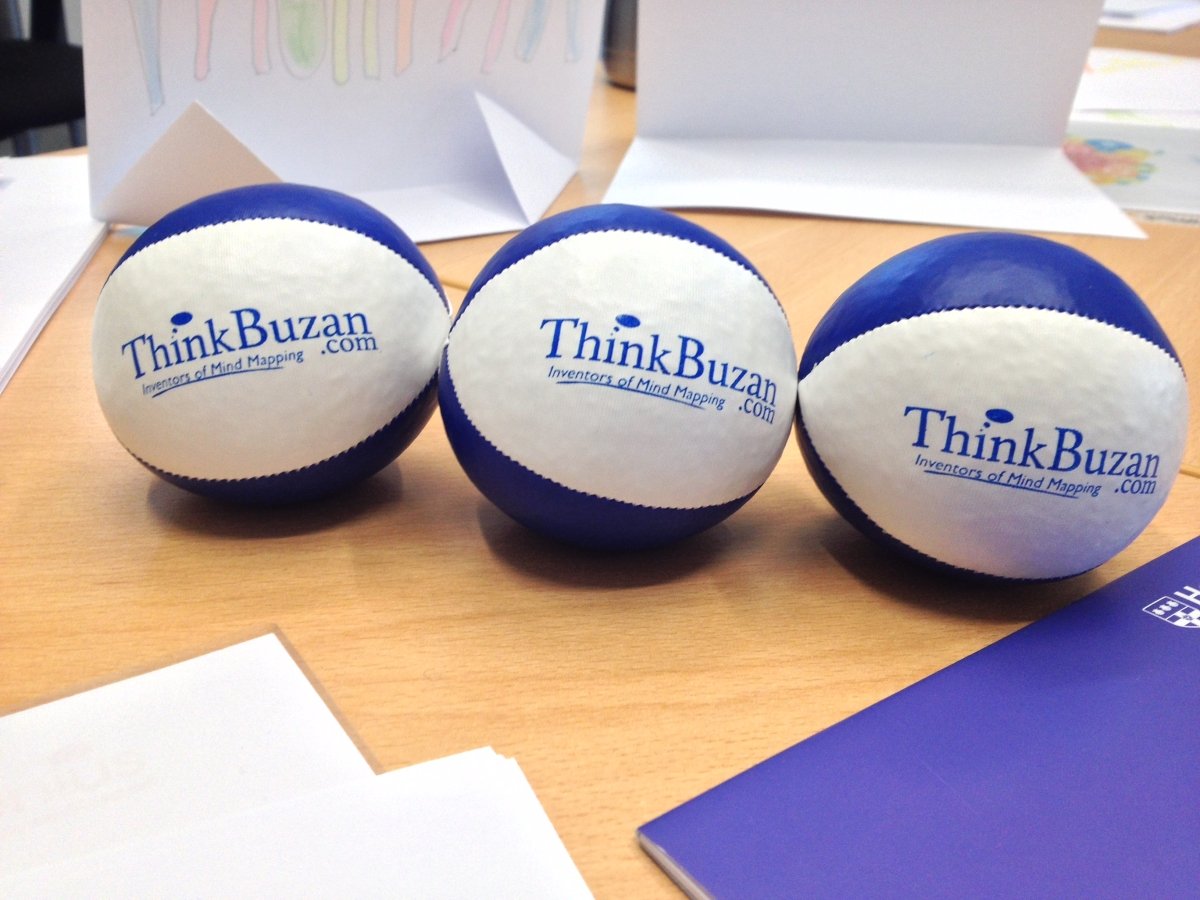
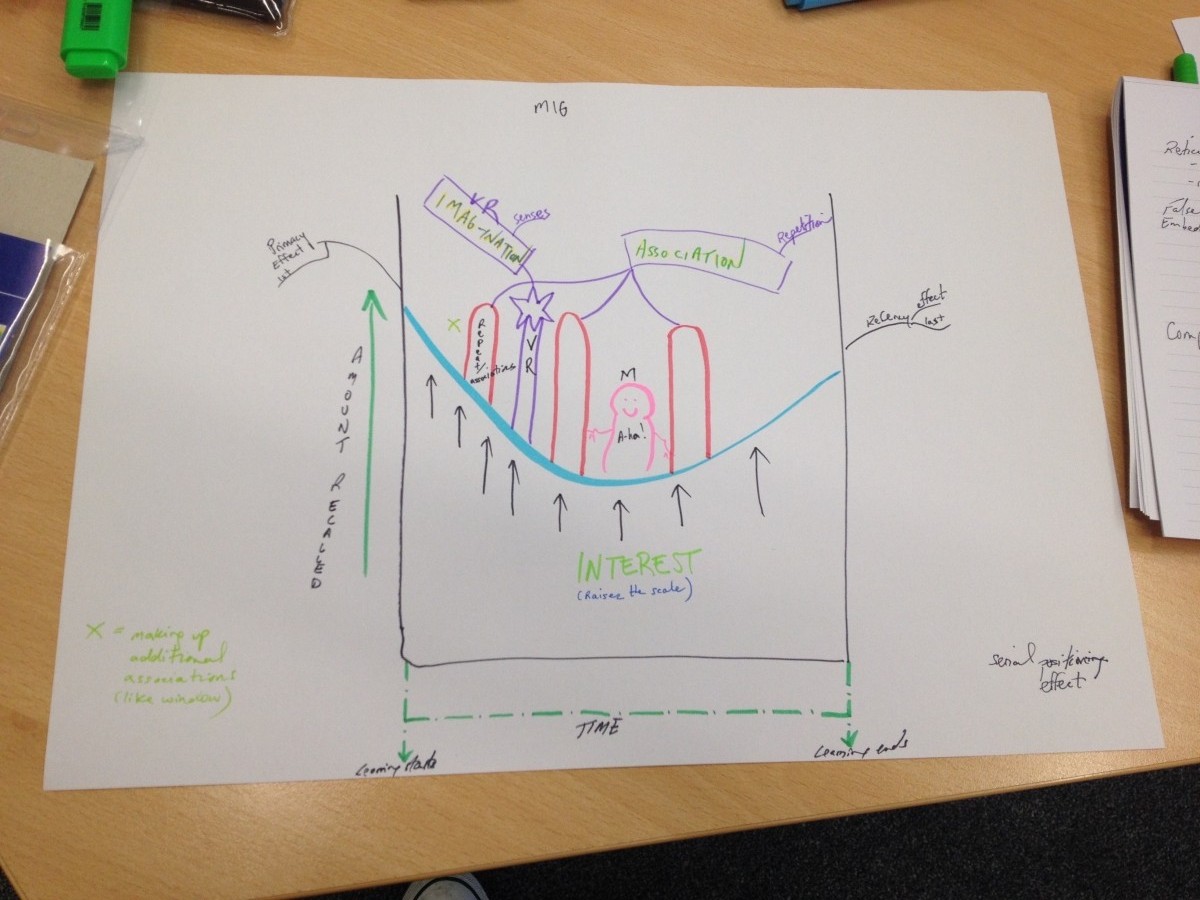
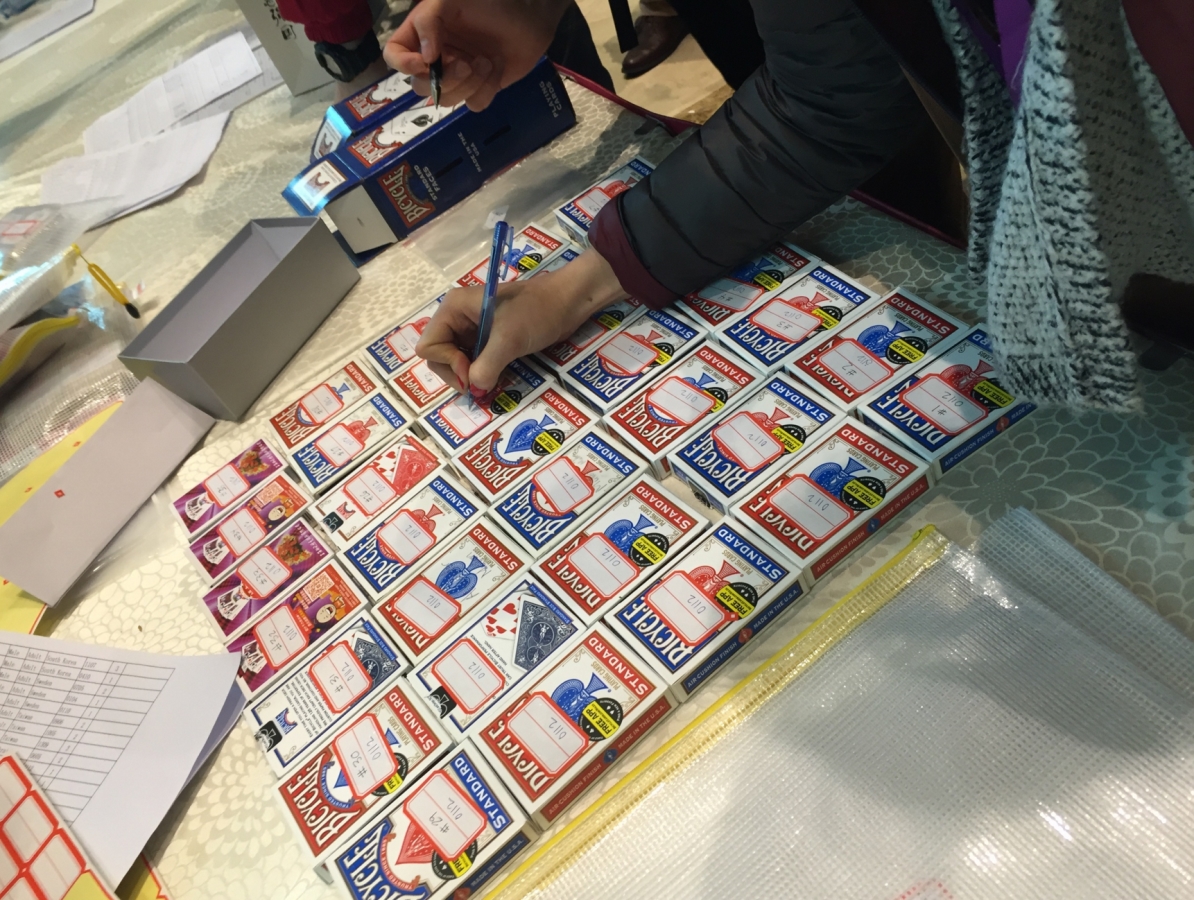
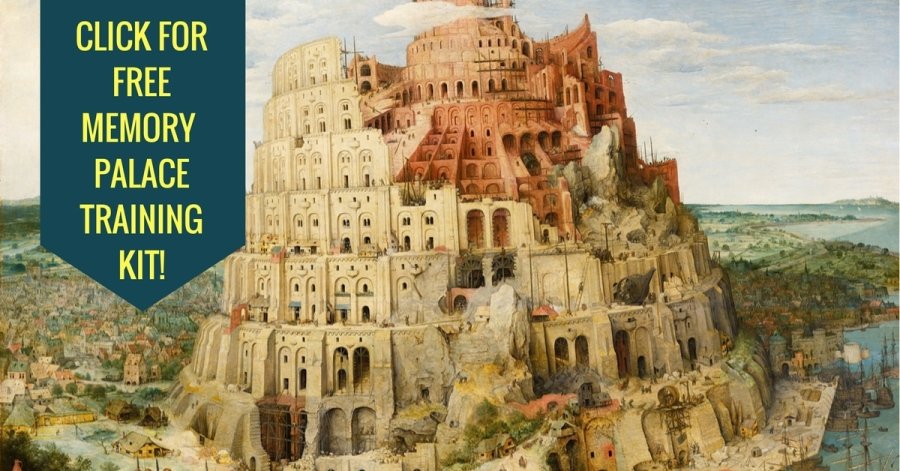
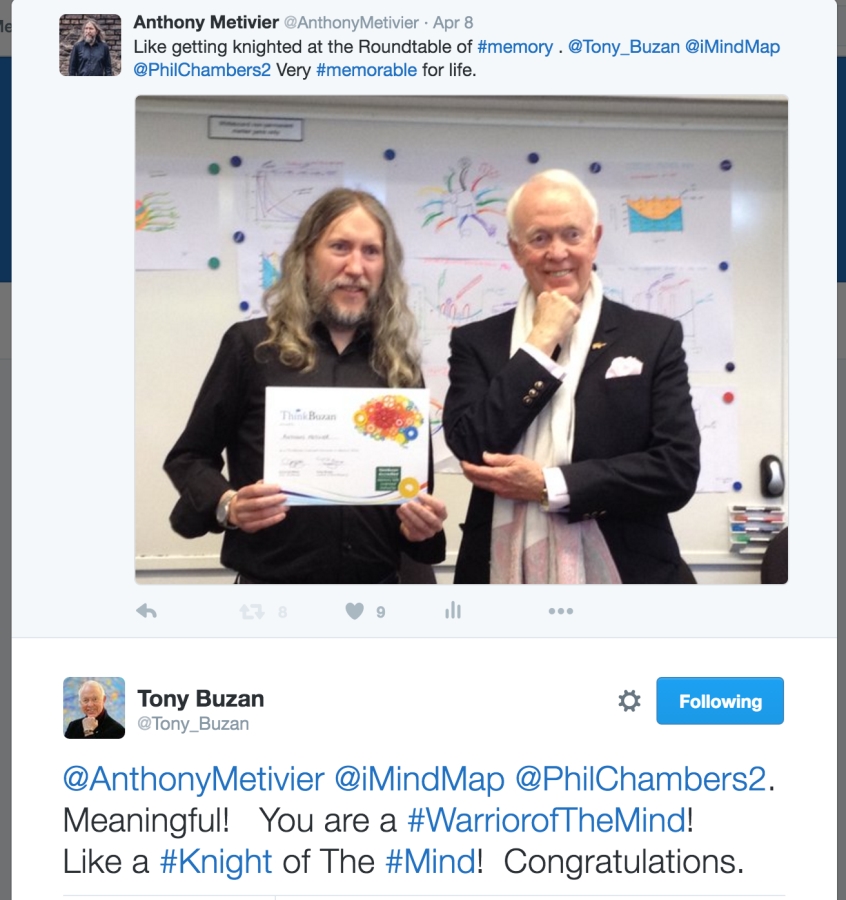
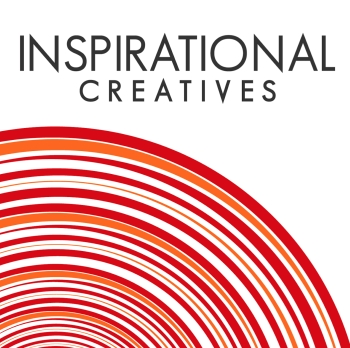 Do you struggle with concentration and memory?
Do you struggle with concentration and memory? You’ve heard people throw the word serotonin around, right?
You’ve heard people throw the word serotonin around, right?